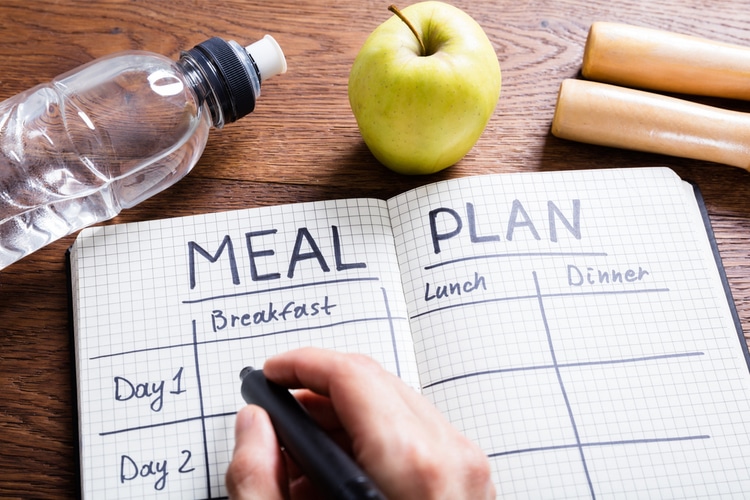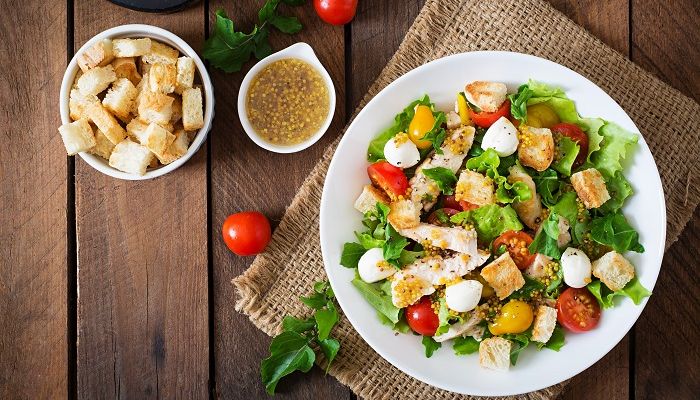
Welcome to ScienceDoors.com The best place to study and learn scientific content.
New technologies, wonders of the world and the future world
editor@sciencedoors.com
As healthy food is often more expensive than junk food (what’s that all about?), it can be pretty tempting to start buying junk. Hopefully these tips should stop you from going down that path.
The apps on mobile phone and tablet devices are yet another craze to sweep through the world of technology, and they make keeping fit and healthy even easier. With the help of a handy app on your mobile, you can now track everything from your exercise to your eating habits and get tonnes of advice at the same time. While some of these apps may cost, many of them are free so there’s no need to spend a fortune on nutritional advice or spend hours trawling through internet pages. Just search for free health and fitness apps from your smartphone and you’re good to go!

Planning your meals ahead is a good way to reduce the grocery bill and make sure you get all the nutrients necessary for your healthy lifestyle. When you buy your meals in advance, you can plan out how many calories you will consume each day and make sure you incorporate enough fruit and veg. When you’re in a rush and you’re grabbing a sandwich off the shelf, both your healthy lifestyle and thoughts about your bank balance seem to go out the window, so meal planning is the way forward when it comes to healthy eating on a budget.
While it may be more tempting to grab a ready-made meal from the shop on your way to or from work, it’s cheaper and healthier if you can resist temptation and prepare your own meals. By making your own meals, you are in control of what goes into the food; no preservatives and no extra salt or unnecessary calories are always a good move. You can control the portion size too; make larger portions and store some of it in a sealed container in the fridge or freezer so you can dip into it throughout the rest of the week.
Opting for frozen vegetables over the fresh option is a good idea for both your bank account and your health. Of course, frozen veg lasts longer because it won’t go out of date meaning that you don’t need to keep dipping into your money to repurchase vegetables. However, it’s a common myth that frozen vegetables have no nutrition as some people believe that the nutrients are lost during the freezing process – it’s actually quite the opposite. Indeed, most frozen vegetable companies freeze their veg at its prime ripeness, meaning that it’s often even better for you than fresh vegetables as all the goodness is locked in.

What’s a healthy lifestyle without a good workout? Instead of forking out money on a gym membership, why not take a look online for any instructional fitness videos out there? You'll find a wealth of different fitness classes to choose from; yoga, pilates, ballet – take your pick! Once you’ve learnt the moves, you can search for a different workout. No more repetitive workouts for you!
Perhaps the biggest food and fitness faux pas you can make is going shopping when you’re feeling peckish or – even worse – when you’re ravenous. You’re much more likely to reach for the quick-fix unhealthy snacks to fill up your tum, and all ideas of healthy eating and being financially savvy go out the window. Go shopping on a full stomach and you’re much more likely to be sensible.

If you’re a meat eater, you’re probably aware of how expensive it is to get good quality meat. When cooked in the right way, meals made from cheaper cuts of lean meat can be just as tasty. Buy lean cuts of beef, chicken and lamb and you can make stews and casseroles that last all week. Adding lots of vegetables to these dishes will make your meat last longer and keep you full, while also providing you with plenty of nutrition. If you don’t already have a slow cooker, it’s a good idea to invest in one – these make stews, hotpots and soups so much easier and they can be cooking throughout the day so all you need to do is prepare it, put it in the slow cooker and tuck in.
We’ve heard it all before and we’ll undoubtedly hear it again sometime soon; breakfast is the most important meal of the day. One of the best choices to opt for when it comes to cereals is oats. Oats release energy slowly throughout the day to keep you fuller for longer, meaning that you’re less likely to have a cheeky snack before lunch time. If you don’t fancy a hot porridge cereal, try mixing oats into low fat yoghurt topped with cinnamon.
No matter how much or little fruit and veg we buy, we always seem to end up with the ones that go over-ripe and we aren’t too sure what to do with them. Instead of throwing these away, turn the vegetables into soup and the fruit into a smoothie. This saves money as you can have soup and a wholegrain bread roll for lunch the rest of the week, and you can easily get enough portions of fruit by drinking them in the form of a smoothie – perfect!
Make sure you have a good supply of healthy staples in your kitchen at all times. That way, when you’ve ran out of food you can muster something up without compromising on your health and you’re still saving money because you don’t have to go out and buy a whole new meal. Agave syrup, honey, brown rice and acai berries are all good healthy store cupboard staples.
Make sure you enter all the required information, indicated by an asterisk (*). HTML code is not allowed.